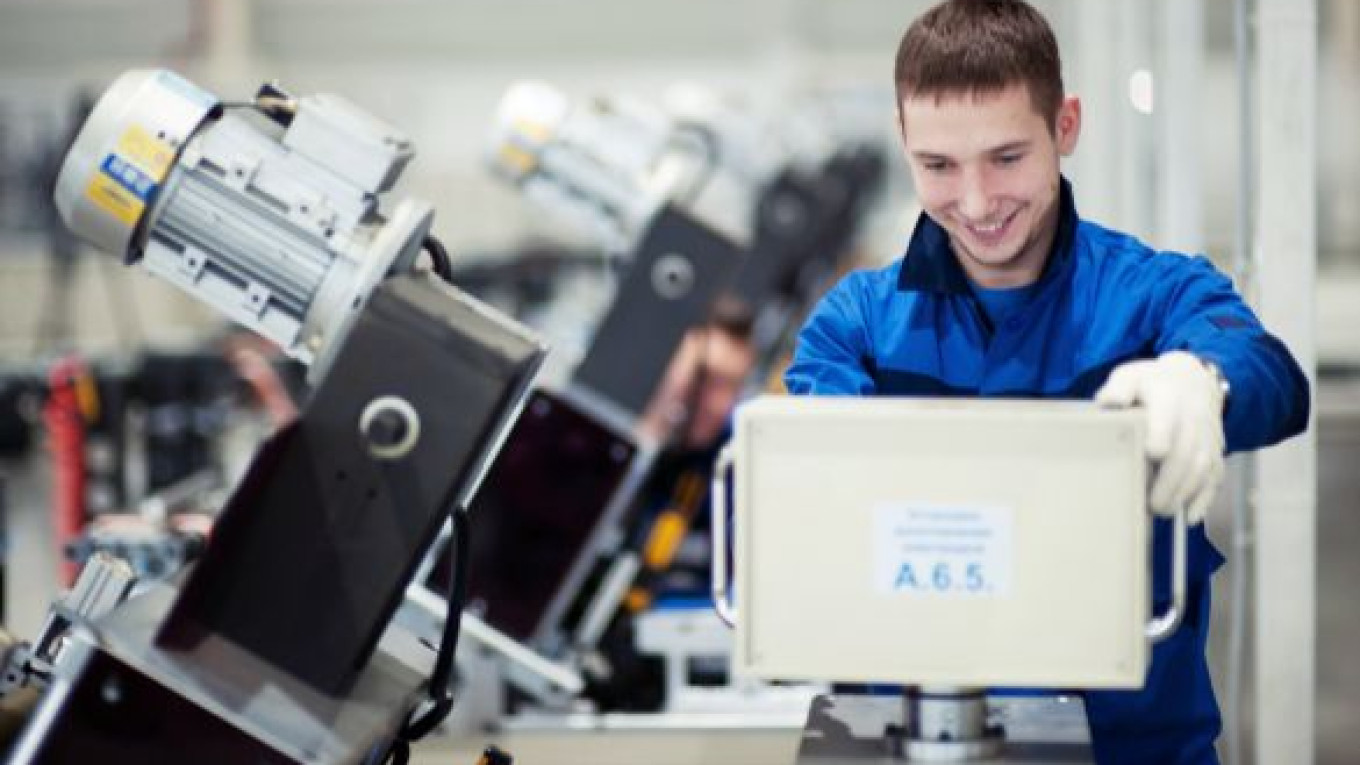Correction: An earlier version of this article misnamed the company that built the Siberian plant. The company is PNK Group.
NOVOSIBIRSK — At first glance, Liotech's $413 million Siberian factory that plans to churn out a million batteries a year appears to be a showcase of Russian industry, innovation and expertise.
Except that all the machinery used by the plant was manufactured by Chinese companies, all the raw materials for the LT-LYP 200, LT-LYP 300 and LT-LYP 700 batteries come from China and all of the factory's finished products are destined for the Chinese market.
Located just outside Novosibirsk, the plant is run by Liotech, a daughter company of China's battery manufacturer Thunder Sky in partnership with state-owned Rusnano. Thunder Sky owns 50.0001 percent of the enterprise, Rusnano 49.9999 percent.
Liotech's batteries are primarily destined for the electric transport and energy supply industries and the company estimates that the world market for lithium-ion batteries will grow tenfold over the next nine years to be worth almost $30 billion.
About 60 Chinese engineers have been in Russia since June training local workers to use the equipment that is labeled in Chinese. But they were quietly hidden away last week during the official opening of the factory attended by guests including Novosibirsk region Governor Vasily Urchenko and Rusnano head Anatoly Chubais.
As there was a wish to "show to the leaders that Russians already know how to operate [the machinery]," Thunder Sky director Shaoping Lu told The Moscow Times on Thursday that "most of [the Chinese engineers] didn't come today."
In an address to the assembled journalists, factory workers and politicians, Chubais said that without foreign assistance, the venture could never have got off the ground.
"When we began this project, we understood that all of [Russia's] existing equipment and all of its existing production facilities associated with battery manufacture were of yesterday's standard," he said. "We were radically behind."
The new factory is a vehicle for technology transfer. It aims to use only Russian raw materials by 2015, Liotech's general director Alexander Yerokhin said in an interview. While he has a guaranteed market in Thunder Sky, Yerokhin is also free to find Russian consumers. "It's their [Thunder Sky's] obligation to buy, but not my obligation to sell," he said.
Shaoping Lu said for Thunder Sky the appeal of the project was the recognition and access it gives to its name and products in Russia. They had intended to build the plant in China, he added, but Rusnano insisted on Novosibirsk.
Liotech, registered as a company in February 2010, believes that in the face of a gradual global shift to electronic transport systems its batteries will be in greater and greater demand. Moscow will deploy a hundred electric buses next year and Novosibirsk began to use "half" electric buses — that run from overhead lines but can switch to their own power when the lines end — in June, Yerokhin said.
Liotech has currently just one contract — a 3 billion ruble ($95 million) agreement with new innovation company Mobel.
Yerokhin admitted that the growth of the market in urban electric transport systems was highly dependent on the state. "A lot depends on politics," he said.
Though Chubais said at the opening ceremony that the project had faced a lot of opposition, including in the choice of a Chinese partner, the involvement of Rusnano is likely to guarantee support for Liotech and its batteries.
The plant was constructed in record time. "In Russia, a normal time frame for the building work on this type of project is one and a half to two years … [for this] we had eight months for everything," said Oleg Mamayev, executive director of PNK Group that put up the factory during a Siberian winter in temperatures of minus 40 degrees Celsius.
Financing was provided by loans from Rusnano (5.50 billion rubles), credit from Sberbank (3.90 billion rubles), investment from Rusnano shareholders (2.08 billion rubles) and from Thunder Sky shareholders (1.45 billion rubles). The factory is expected to be profitable in five years.
A Message from The Moscow Times:
Dear readers,
We are facing unprecedented challenges. Russia's Prosecutor General's Office has designated The Moscow Times as an "undesirable" organization, criminalizing our work and putting our staff at risk of prosecution. This follows our earlier unjust labeling as a "foreign agent."
These actions are direct attempts to silence independent journalism in Russia. The authorities claim our work "discredits the decisions of the Russian leadership." We see things differently: we strive to provide accurate, unbiased reporting on Russia.
We, the journalists of The Moscow Times, refuse to be silenced. But to continue our work, we need your help.
Your support, no matter how small, makes a world of difference. If you can, please support us monthly starting from just $2. It's quick to set up, and every contribution makes a significant impact.
By supporting The Moscow Times, you're defending open, independent journalism in the face of repression. Thank you for standing with us.
Remind me later.


